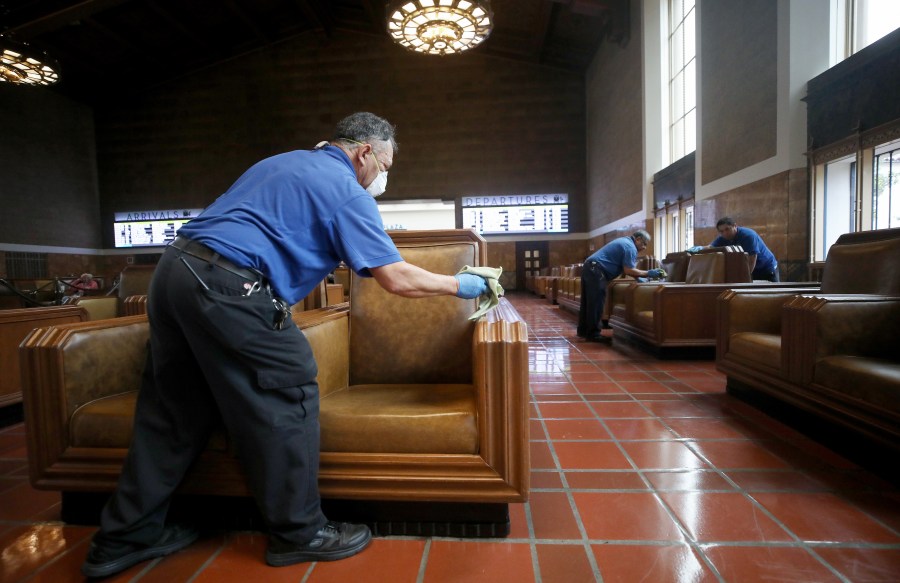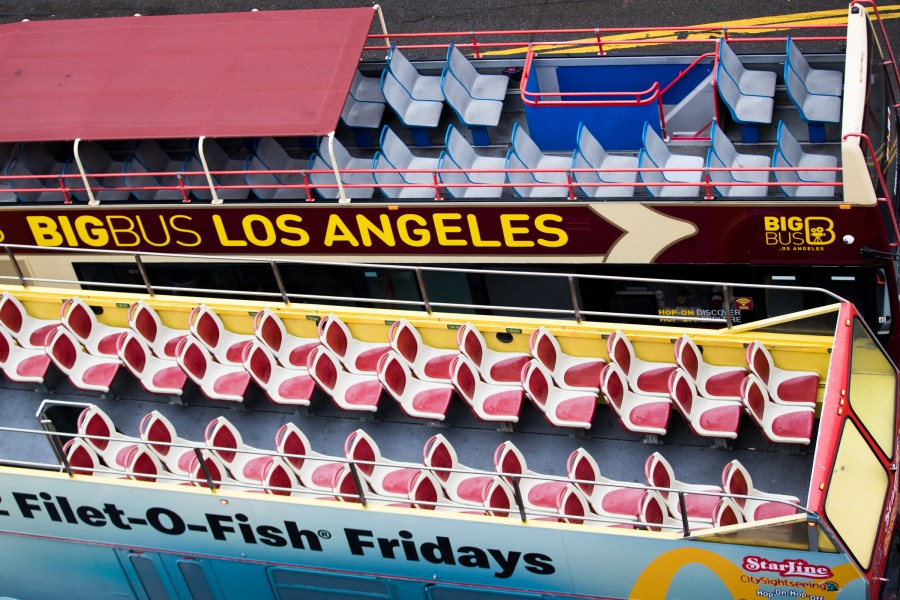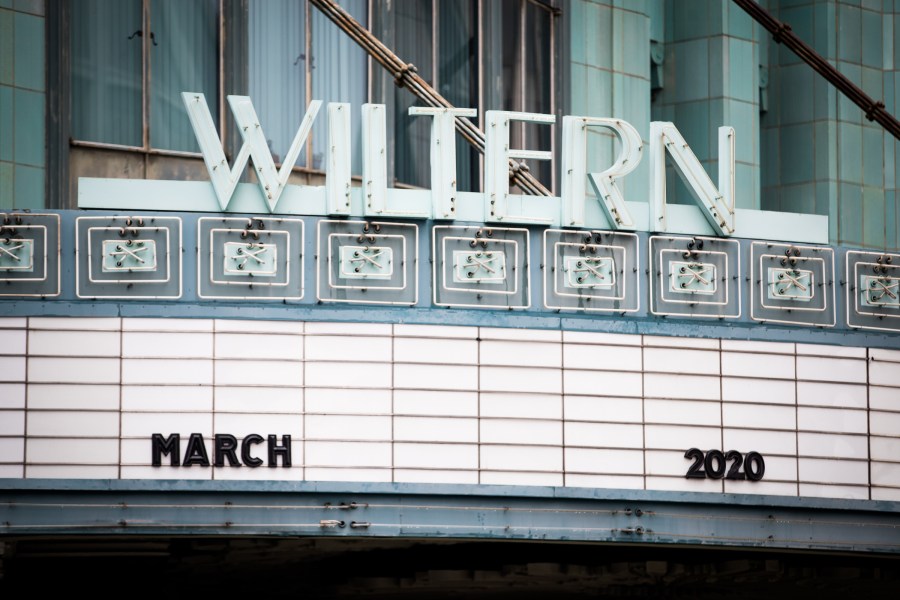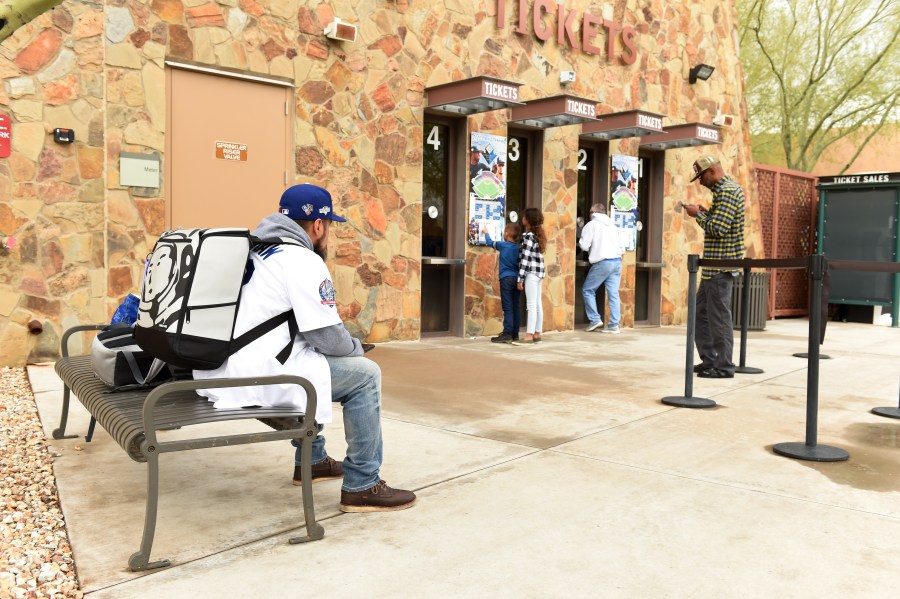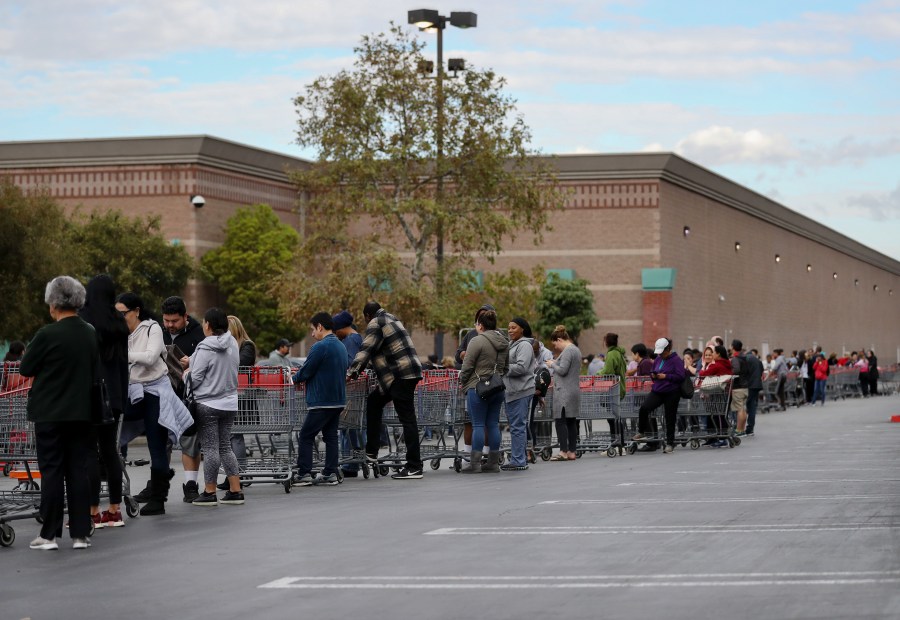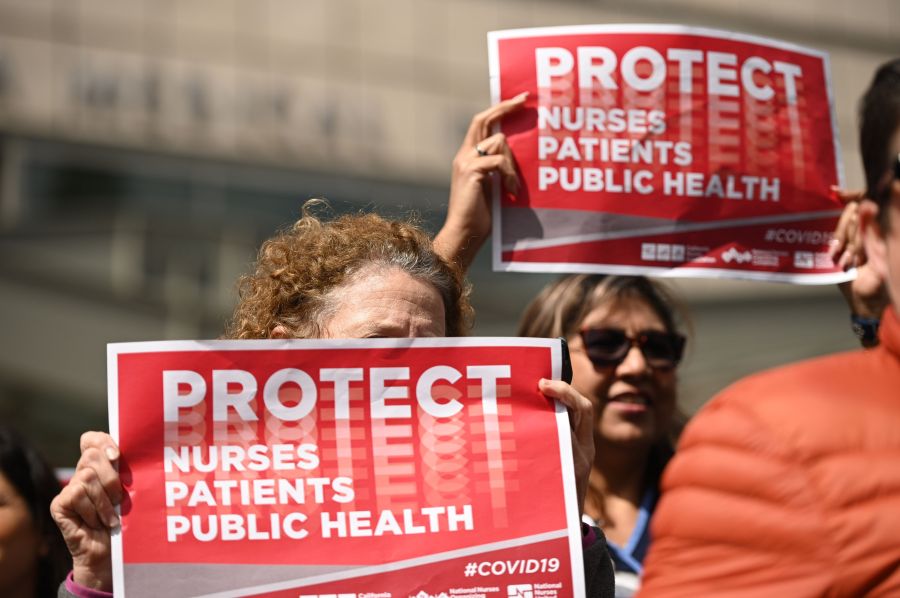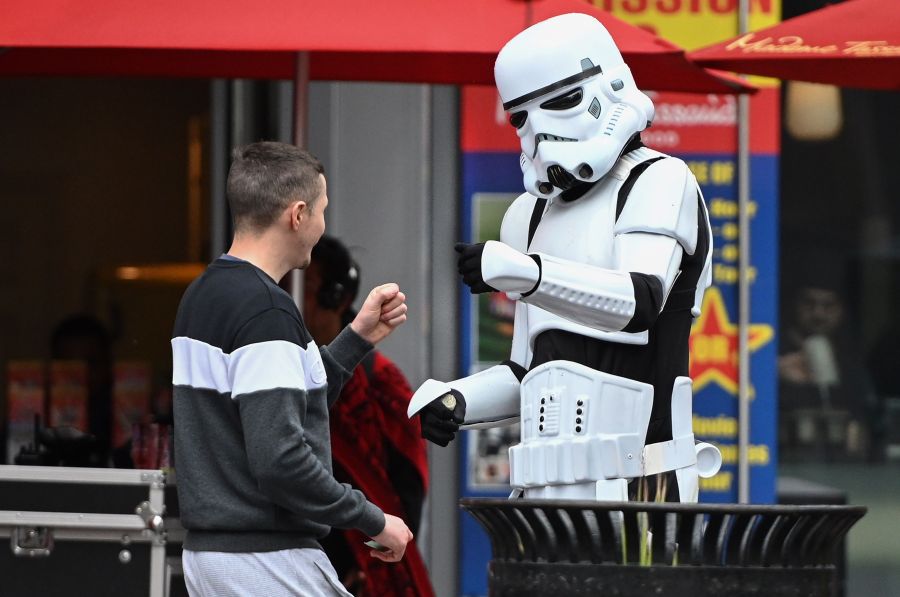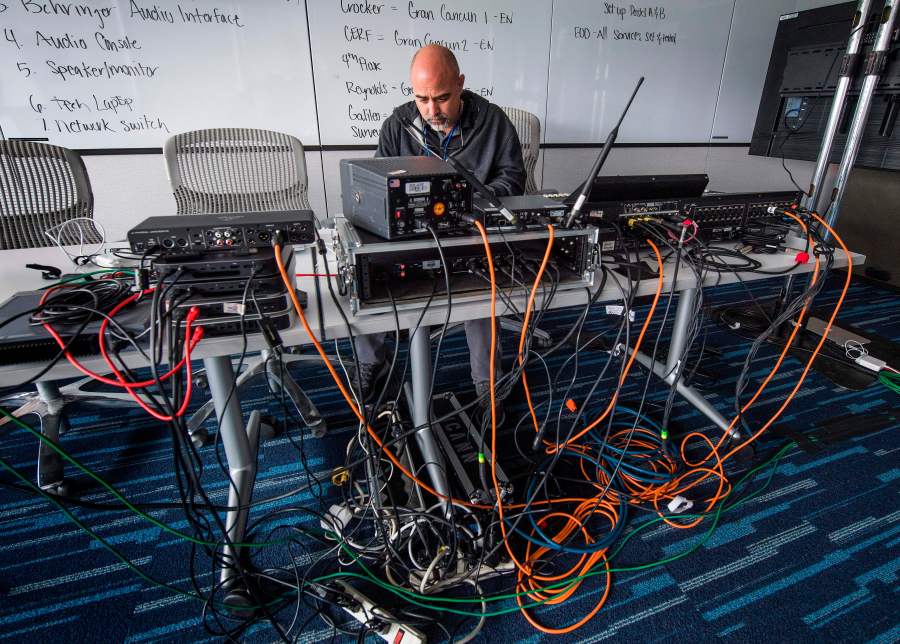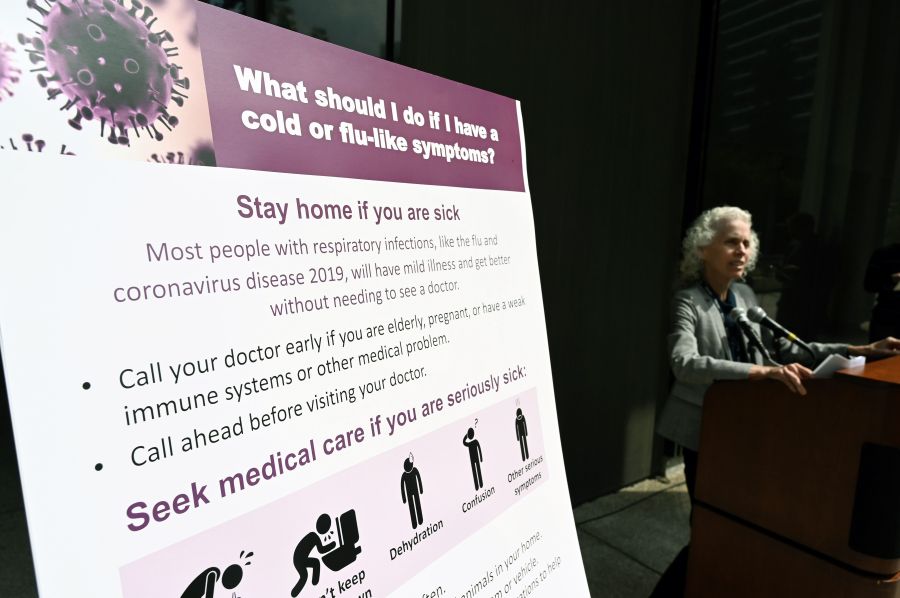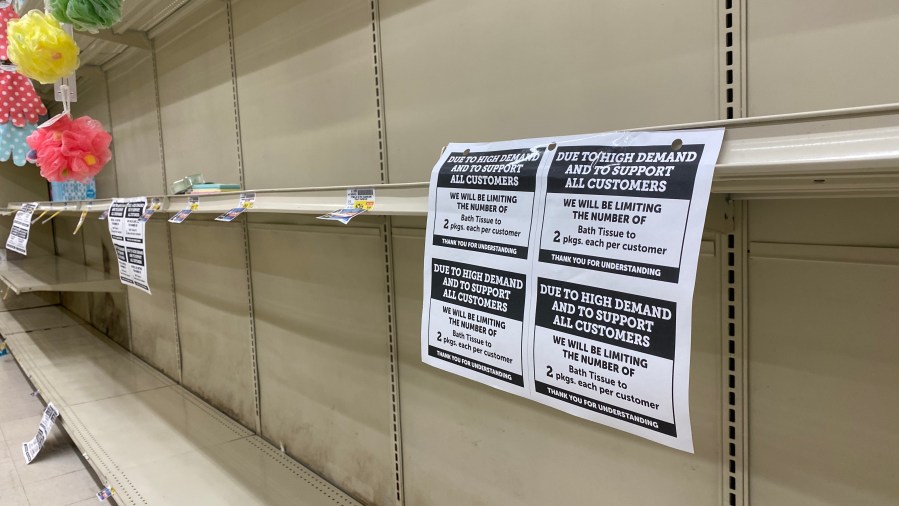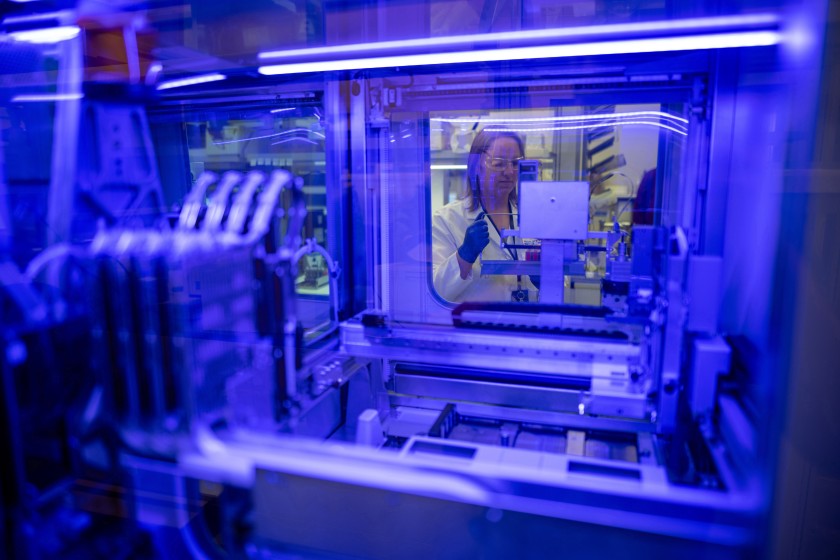Empty store shelves. Empty churches. Shuttered classrooms and courts. Warnings everywhere to wash hands and avoid close contact. Even canceled state Senate hearings.
Efforts to stop the spread of the coronavirus in California are affecting virtually every facet of life in the Golden State in ways big and small — and in some cases, surreal.
Popular restaurants were desperate for patrons, and typically crowded gyms had plenty of floor space. Some stores limited sales of toilet paper and other goods to combat hoarding.
The phrase “social distancing” — simply, keeping away from other people to prevent the spread of the illness — was suddenly part of everyday conversation. Thousands of people were being urged to work from home, if possible, rather than coming into the office.
And health officials were repeating the mantra: “Don’t touch your face!”
With the COVID-19 virus outbreak declared a world pandemic, Californians were abandoning their laid-back image as governments and businesses rushed to put measures in place to reduce its spread, ranging from bans on large group gatherings to information campaigns.
Beginning Saturday, more than 700 electronic highway signs will display new public health warnings, according to the California Department of Transportation. The signs will warn: “COVID-19. Less is more. Avoid gatherings” and “Disinfect 2 protect wash your hands.”
Roman Catholics in the Los Angeles and Oakland dioceses were dispensed from the obligation to attend Sunday Mass through March. The Los Angeles archdiocese said attendance at Mass would be limited to 250 people. A livestream of the LA cathedral service was also being made available.
Members of Saddleback Church, a megachurch with locations across Southern California, should gather in small groups to watch weekend services online, Pastor Rick Warren said in an email.
On Friday, California’s two largest school districts, Los Angeles and San Diego, joined many others in announcing closures. By Monday, one-third of California’s 6 million public school students will be out of the classroom for one up to five weeks, depending on the district, as schools look to limit the health risks. Some expanded spring break while others were taking a wait-and-see approach.
Students were warned not to goof off, though. The Glendale Unified School District near Los Angeles notified the community that students would “engage in off-campus, remote enrichment activities.” As in other districts, the specifics were still being worked out.
Colleges and universities, including UCLA and Stanford, have said they will hold classes online.
Maryjane De La Rosa, a 16-year-old sophomore at Los Angeles’ John Marshall High School, said she wished the state’s largest district had closed schools sooner.
“I think the precautions should have been taken a long time ago,” she said, noting she has asthma and is worried about her health. She plans to stay inside this weekend, “knowing I’m safer at home.”
There were concerns that closing school cafeterias would deprive students of meals, especially those from poorer familes. West Contra Costa Unified School District announced that any child under 18 will be able to pick up food at two high schools from 11 a.m. to 1 p.m. weekdays.
Kids kept out of school might find their entertainment choices limited. Zoos, museums and even Disneyland were closed to the public while college and major professional sports leagues cancelled games or announced they’ll be played to empty stadiums.
Courts in Los Angeles and San Diego counties moved to delay trials and Contra Costs closed its courts for two weeks. Even political campaigns were forced to adapt. Republican Mike Garcia, who is running in a special election for a vacant U.S. House seat north of Los Angeles, scheduled a string of town halls where voters will join by telephone rather than meeting him in person.
Taxpayers got more time to file; state officials moved back the deadline to file California tax returns by two months to June 15.
The state Senate canceled all its committee hearings for next week in order to focus on handling the coronavirus outbreak, although the Senate as a whole was still scheduled to meet. Meetings of the Assembly were still scheduled.
Jot Condie, who heads the California Restaurant Association, said some restaurants in tourist-dependent economies like San Francisco, Los Angeles and San Diego had seen business plummet by 70 percent during the crisis.
“When the volume goes down by 70%, they are not barely turning a profit, they are hemorrhaging,” Condie said.
The virus usually causes only mild or moderate symptoms, such as fever and cough. But some people, especially older adults and people with existing health problems, can be hit with more severe illness, including pneumonia.
California has about 250 confirmed cases and recorded five deaths as of Friday, including that of a woman in her 80s from Santa Clara County. The county south of San Francisco is the hardest hit in the state, reporting a tripling of cases this week to 79. More than half were infected through so-called community transmission — in other words, the source of the infection was not known.
Counties up and down the state have banned large group gatherings. Santa Clara County authorities ordered that as of Saturday and for at least three weeks, there will be no gatherings of more than 100 people, excluding airports, office buildings, pharmacies and medical offices.
In Oakland, nearly 2,500 passengers have headed to quarantine sites from a cruise ship that docked there Monday after passengers contracted the virus. Princess Cruises said 14 international passengers remained on the ship while waiting to be repatriated to their home countries.
With restaurants taking a financial hit, Los Angeles Mayor Eric Garcetti urged residents to order home delivery. Popular supermarket Trader Joe’s said on its website it was suspending all food and beverage samples in stores.
In Los Angeles, dozens of unionized hospitality workers applied for unemployment benefits Friday at the Hospitality Training Academy after their hours were cut.
Teresa Trejo, 46, of Inglewood, saw hours at all three of her jobs — a bartender at the Los Angeles Convention Center, Dodgers Stadium and The Forum — slashed to zero because events and games at those locations have been canceled.
“You just feel so confused because you still have your life” and bills to pay, she said before filling out her application.
Correction: The Associated Press provided an incorrect number of deadly COVID-19 cases reported by the state of California. This post has been updated with the death toll confirmed to KTLA by the California Department of Public Health as of 9 a.m. Saturday.
